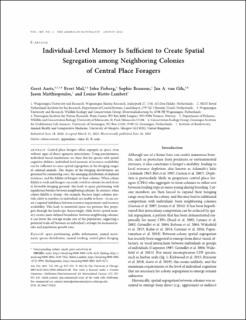| dc.description.abstract | Marine Spatial Planning (MSP) is a relatively new approach to ocean management and has been widely implemented worldwide. Ideally, MSP should be established as a public process that analyzes and distributes human activities across space and time to achieve ecological, economic and social goals, which historically have been accomplished exclusively in the political arena. However, in most cases MSP seems to be driven primarily by economic interests rather than by sociocultural goals. In this paper, we discuss how integrating the missing sociocultural layers into MSP can help to reduce governance rigidity, promote adaptability in decision-making, support environmental justice, and improve MSP acceptance and uptake. In particular, we focus on identifying possible points of connection between MSP and frameworks based on social-ecological system theory, including co-management and other democratic and empowering alternatives. We conclude by proposing a new definition of the MSP process that is more inclusive, and mindful of users’ rights and sociocultural objectives. If we bridge the gap between the dominant economic rhetoric and a de facto sociocultural-ecological system approach, we are likely to improve the chances of the MSP process succeeding on both the human and nature fronts. Central place foragers often segregate in space, even without signs of direct agonistic interactions. Using parsimonious individual-based simulations, we show that for species with spatial cognitive abilities, individual-level memory of resource availability can be sufficient to cause spatial segregation in the foraging ranges of colonial animals. The shapes of the foraging distributions are governed by commuting costs, the emerging distribution of depleted resources, and the fidelity of foragers to their colonies. When colony fidelity is weak and foragers can easily switch to colonies located closer to favorable foraging grounds, this leads to space partitioning with equidistant borders between neighboring colonies. In contrast, when colony fidelity is strong—for example, because larger colonies provide safety in numbers or individuals are unable to leave—it can create a regional imbalance between resource requirements and resource availability. This leads to nontrivial space-use patterns that propagate through the landscape. Interestingly, while better spatial memory creates more defined boundaries between neighboring colonies, it can lower the average intake rate of the population, suggesting a potential trade-off between an individual’s attempt for increased intake and population growth rates. space partitioning, public information, animal movement, species distribution, animal tracking, central place foraging | en_US |

